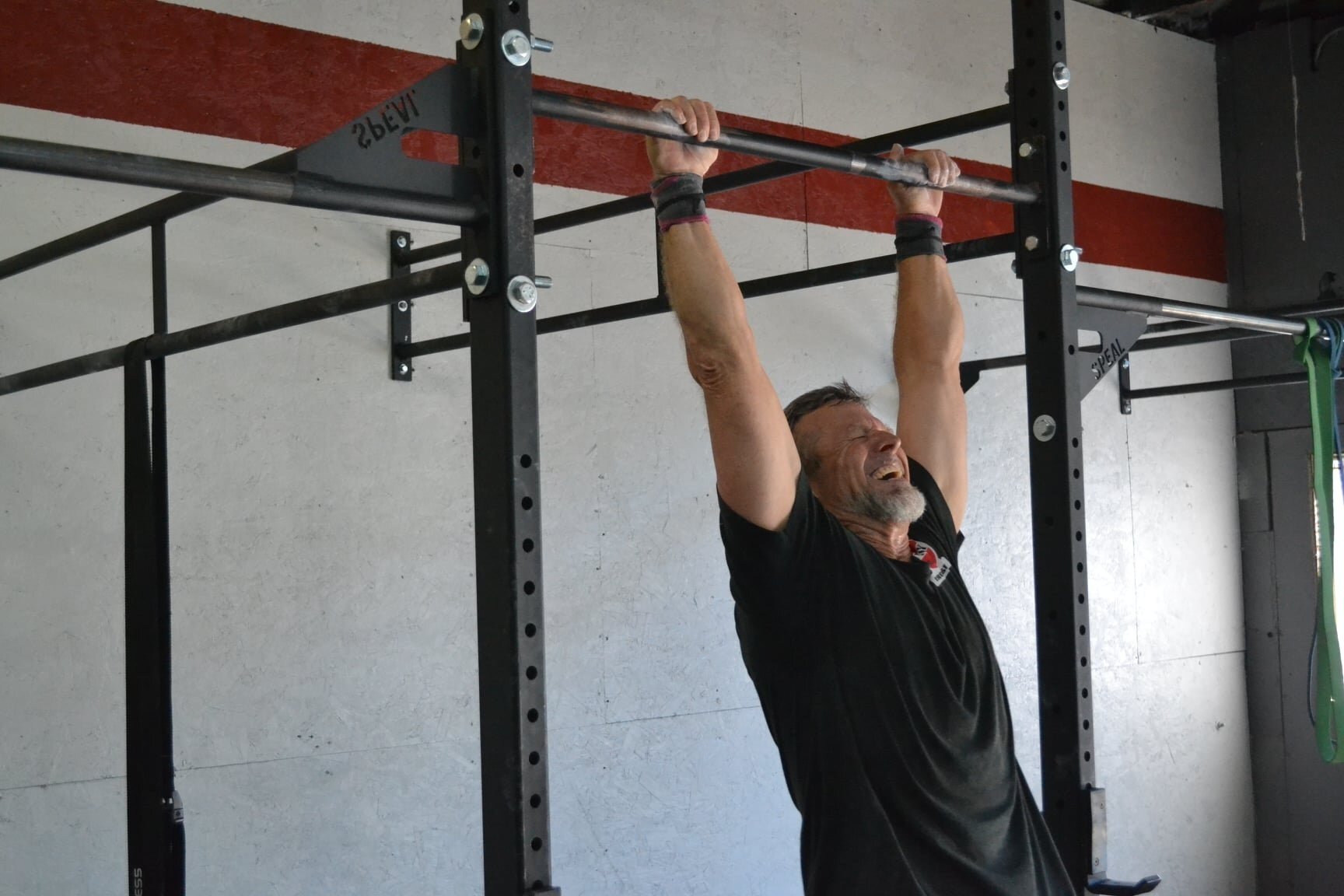Benefits of strength training- Old age and falling over
While there are countless benefits to strength training, I wanted to reflect on a conversation Hannah and I had the other night over dinner.
As a little bit of a background, Hannah currently trains a couple who are in their late 60s to early 70s. She goes to their house in the morning and works with them for about an hour. Typically their workouts include lots of core, slow eccentric bodyweight movements, and then some higher intensity interval training towards the end of their session. The HIIT is typically done per the insistence of the husband, who abides by the common misconception that “if I am not getting my heartrate up, I am not working hard, therefore the workout was not productive”.
At dinner Hannah and I were talking about both of us potentially looking for a couple more clients to take on, as we have both felt somewhat comfortable and not too busy recently. I asked her if this couple had any friends who they might be able to reccomend her to. She said that they are both quite social, and the wife oftentimes goes on long walks with her friends throughout the week, but chuckled and said that none of her friends would ever consider doing “that lifting and other high intense stuff”. Hannah told me this was a conversation she has had with the wife before, and all of her friends are happy continuing to walk as their only source of exercise.
Interestingly, I began to quickly refute and start to pick apart the idea that walking was not enough to combat muscle degredation that comes with age but Hannah quickly stopped me noting that the couple who she trains are both very much of the mindset that the bodyweight and lighter lifting movements coupled with some basic and safe high intensity work is exactly what makes them feel strong.
I thought it was interesting that this couple who is a little bit older has more or less gotten on board with the relatively new ideas that older populations should be strength training to maximize their vitality as they age. In this example, this couple that Hannah trains is clearly getting plenty of aerobic stimulus from simply walking with their friends throughout the week. They might not be ready to do an iron man any time soon, but they are doing enough to keep themselves fit, healthy, and able to enjoy their lives. But, where they will be set apart from their friends is their strength. I can think of two scenarios where their strength will benefit them relative to their friends in the next 10 years:
Since they are stronger, and weight training is slowing the rate of muscle loss, 10 years from now, they will be strong enough to continue going for long walks. Their friends have the aerobic fitness to go for a long walk, but will their muscles be strong enough to get them up the hills? Will they be okay if they encounter a long set of stairs? Their heart will probably be able to keep up, but will their muscles?
Now hopefully this scenario doesn’t happen, but should any of these folks fall in the next 10 years. The research shows that an individual who strength trains will likely come out of the incident better off than an individual who doesn’t. Why? Because the stronger individuals can catch themselves on the way down, and they are strong enough to get back up if they do fall.
Now, this isn’t meant to instill fear into those who don’t currently weight train, rather, shift the perspective of those who might think that it is dangerous. Under the supervision of a professional, weightlifting is safe and as you age it can greatly decrease your risks of injury. I think it is a very esoteric way of thinking, that weightlifting is something reserved for athletes or young folks, where in reality, the subpopulation who would benefit from it most are middle to older aged adults.
You can think of it this way:
A young guy does some weightlifting and it moves him up from 2nd to 1st string on his football team. He then goes from having no recruitment opportunities to getting offered a spot on a small D3 school. Sure, he benefitted from this, but he was already a pretty fit healthy guy.
or
A older middle aged lady starts weightlifting 2x per week. She does this from the age of 55 to 75. When she is 75 she falls and hurts her hip, has to go see a doctor but otherwise a couple bumps and bruises and she’s on her way. The doctor says “wow, if you hadn’t been quite as strong like most of the 75yo ladies I see, you would have broken your hip and possibly died! (chance of death within the same year of a hip fracture skyrockets)”.
Between the two of these people, it should be obvious who really benefitted from the weightlifting the most. Now I know there are 1000 reasons you can debunk the example, but for examples sake I think you get the point.
Weightlifting for older populations is not only good, but neccessary.

